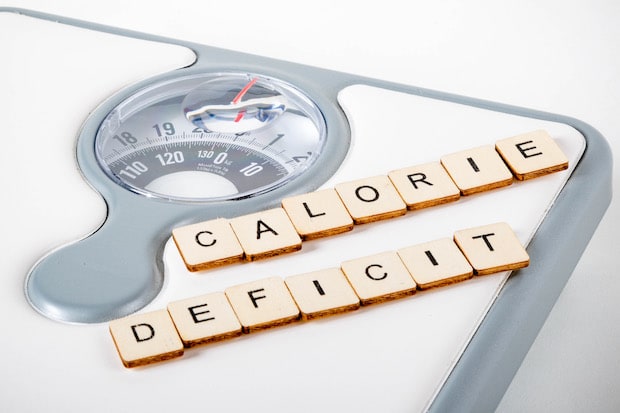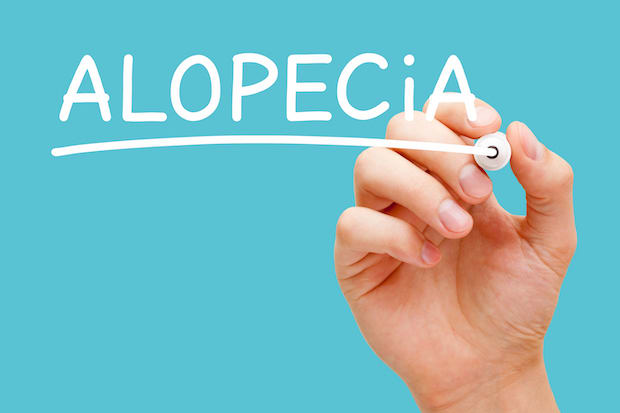Hair Loss During Weight Loss? Here's How to Manage It
Hair Loss During Weight Loss? Here's How to Manage It
Table of Contents
II. How Long Will Hair Loss Last?
IV. When to Talk to a Professional
V. Manage Your Fight With ScriptsMD
Losing weight can feel empowering, but it can also come with surprising side effects, like hair loss. You're not alone if you’ve noticed more hair in your brush or pillow while dieting. Hair loss during weight loss is a fairly common experience, especially when changes to your routine are sudden or extreme.
Our bodies need a balanced mix of nutrients to keep hair growing strong. When we drastically change our diets, even with good intentions, it can sometimes backfire. The good news? Most hair shedding linked to weight loss is temporary and reversible with the right care.
In this article, we’ll explain why hair loss occurs during weight loss, what signs to watch for, and simple ways to keep hair healthy as you work toward your goals. Understanding the connection between nutrition, stress, and hair can help you manage the process with more confidence and less worry.
Quick Takeaways
- Hair loss during weight loss is often linked to nutritional deficiencies.
- Crash diets and rapid weight loss can shock your system.
- Stress and hormonal shifts also contribute to shedding.
- Eating a balanced diet is the most effective prevention method.
- Gentle hair care and supplements may help reduce hair thinning.
- Most hair loss is temporary and resolves with time.
Understanding Hair Loss Triggers
The Role of Nutrition
Hair is made of protein, so it’s no surprise that your diet plays a massive role in keeping it healthy. When you cut calories or certain food groups, your body may struggle to get enough nutrients like protein, iron, zinc, and B vitamins. These are all essential for strong, growing hair. Without them, your body might shift its focus to more critical functions, leaving your hair growth to slow or stop altogether. This can lead to noticeable thinning or shedding over time. A well-rounded diet is your best defense against this kind of hair loss.
Crash Diets and Calorie Deficits
Losing weight too quickly can shock your body and disrupt many normal processes. Extreme dieting or drastic calorie cuts may cause hair loss, which is known as telogen effluvium.
- This form of hair loss is triggered by stress on the body.
- Hair enters a shedding phase sooner than it usually would.
- The hair loss usually appears as overall thinning rather than bald spots.
- It often starts 2 to 3 months after the diet begins.
Because of this, even healthy foods can't fully offset the sudden impact on your hair's natural cycle.

How Long Does It Last?
Telogen Effluvium Explained
Telogen effluvium is the medical term for temporary hair shedding, often linked to weight loss. Normally, about 85–90% of your hair is in a growth phase, while a smaller portion is resting and eventually falls out. When your body experiences a shock, like rapid weight loss, it can simultaneously push more hair into the resting phase.
- It often becomes noticeable 2–3 months after a triggering event.
- Both men and women can experience this condition during weight loss.
This sudden shift usually shows up as diffuse thinning across the scalp, rather than in patches. The good news is that telogen effluvium doesn’t cause permanent damage to hair follicles. As your body adjusts and recovers, normal hair growth typically resumes.
Typical Recovery Timeline
Most people notice hair shedding within two to three months after starting a new diet or losing weight quickly. This can be alarming, but patience is key. For most, the shedding phase lasts around three to six months. After that, hair usually begins to regrow at its normal rate.
If you’ve made dietary improvements and are caring for your scalp, you should see new growth within a few months. However, shedding continues for over six months or is accompanied by other symptoms, like bald patches or scalp irritation. In that case, it’s wise to consult a healthcare provider to rule out other underlying causes.

Prevention Strategies
Nutrition and Supplement Tips
The best way to prevent hair loss during weight loss is to nourish your body well. Make sure your meals include:
- Lean proteins like chicken, fish, eggs, or plant-based options
- Iron-rich foods such as spinach, lentils, and fortified cereals
- Omega-3 fatty acids are found in nuts, seeds, and oily fish
- A variety of fruits and vegetables for essential vitamins
If you’re concerned about nutrition gaps, a multivitamin or supplements like biotin and zinc may help. Always talk to your doctor before starting new supplements to ensure they’re right for you. Eating balanced meals and staying hydrated are key steps toward protecting your health and your hair.
Gentle Hair Care Practices
How you care for your hair daily can make a big difference. Follow these simple tips:
- Avoid excessive heat styling, like blow-drying or straightening.
- Use gentle, sulfate-free shampoos and conditioners.
- Let your hair air-dry whenever possible.
- Don’t brush wet hair; use a wide-tooth comb instead.
- Skip tight hairstyles that pull on your scalp.
These small changes can reduce breakage and help maintain your hair while you work on supporting new growth from within.
When to Talk to a Professional
Red Flags to Watch
While most hair loss during weight loss is harmless and temporary, some signs may indicate a deeper issue. Pay attention if you notice:
- Sudden bald patches
- Scalp pain or inflammation
- Hair loss lasting longer than six months
- Other symptoms like fatigue, weight changes, or skin issues
These could point to medical conditions such as thyroid problems, alopecia areata, or nutritional deficiencies that require professional evaluation.
Treatment Options Available
Suppose your hair loss isn’t improving with time and good care. In that case, a healthcare provider might suggest treatments like topical minoxidil, prescription medications, or, in some cases, blood tests to identify underlying issues. Dermatologists can also offer procedures like microneedling or laser therapy to stimulate growth. Early diagnosis and a tailored treatment plan can make a big difference in your results, so don’t hesitate to seek help if you’re concerned.
Manage Your Fight With ScriptsMD
Hair loss during weight loss can be a frustrating surprise, but it’s a common side effect of significant changes in your diet and lifestyle. In most cases, the shedding is temporary and clears up once your body finds its new balance. Eating a nutrient-rich diet, practicing good hair care habits, and watching for warning signs can help you navigate this challenge more easily. If things don’t improve within a few months, a healthcare professional can guide you toward the right solutions. With time and care, your hair and confidence can bounce back.
Contact ScriptsMD today for more expert advice on maintaining your health and confidence throughout your journey.
